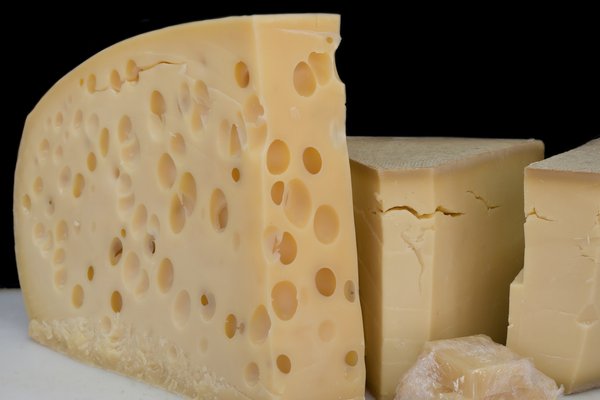Fol Epi

Fol Epi is a French cheese made from pasteurized cow's milk. It has a thin, natural rind and a mild, nutty flavor. It is soft and creamy on the inside and has a low fat content of around 25%. But is Fol Epi also suitable for dogs? In this article you can find out more about Fol Epi in relation to dogs and what advantages and disadvantages it has.
What are the benefits of Fol Epi for dogs?
Cheese is a good source of protein, calcium and other nutrients that are important for your dog's health. Protein supports muscle development and wound healing, calcium strengthens bones and teeth and other nutrients such as vitamin A, B12 and zinc support the immune system and skin health. Fol Epi has a high protein content of approx. 20 % and a moderate calcium content of approx. 600 mg per 100 g. It also contains less lactose than other cheeses, which makes it better tolerated by dogs sensitive to lactose.
Cheese can also be used as a treat or reward for the dog, e.g. during training or as a snack between meals. Fol Epi has a pleasant smell and taste that your dog may like. It is also easy to portion and feed as it is soft and easy to cut. You can give your dog Fol Epi in small pieces or mix it with other food, for example with fruit or vegetables.
What are the disadvantages of Fol Epi for dogs?
As with all foods, you should not give your dog too much Fol Epi, as it can cause digestive problems or make them overweight. Cheese contains a lot of fat and salt, which can be harmful to your dog in large quantities. The fat can lead to inflammation of the pancreas or a fatty liver, while the salt can lead to increased blood pressure or water intoxication. Fol Epi contains less fat than other cheeses, but still around 15g per 100g. It also has a relatively high salt content of around 1.5 g per 100 g. You should therefore make sure that you don't give your dog more than 10 g of Fol Epi per day.
You should also make sure that your dog does not eat Fol Epi bark, as it is difficult to digest and can lead to intestinal obstruction. The bark consists of a natural mold that is edible but not necessarily good for your dog. You should therefore always remove the bark from Fol Epi before giving it to your dog.
Fol Epi is a delicious cheese that can also be suitable for dogs if you feed it in moderation. It has some health benefits for your dog, such as a high protein content and a low lactose content. It can also serve as a treat or reward for your dog. However, you should also be aware of the disadvantages of Fol Epi, such as the high fat and salt content and the indigestible rind. You should therefore always remove the rind and give your dog no more than 10 g of Fol Epi per day.
If you notice any signs of hypersensitivity or poisoning in your dog, you should see your vet immediately. We are not a substitute for a vet, but we try to be as accurate as possible. Every dog reacts differently and we recommend you get a second opinion or consult your vet if in doubt.
Stay healthy and take good care of your four-legged friend!😊
Similar to Fol Epi
Emmental consists mainly of cow's milk, which is pasteurized and mixed with rennet and lactic acid bacteria. The cheese then matures for several months in cool cellars, where it develops its typical...
Gouda is a semi-soft semi-hard cheese from the Netherlands. It is made from pasteurized or raw cow's milk with the addition of rennet and lactic acid bacteria. The cheese mass is pressed into molds...
Cheese can be a tasty treat for dogs that also has health benefits. Edam cheese contains a lot of protein, which is important for muscle building and cell regeneration. It also provides calcium,...
Tilsiter is a cheese that originally comes from East Prussia. It was invented in the 19th century by Swiss cheesemakers who were working in Prussia and improving the art of cheesemaking there. They...



